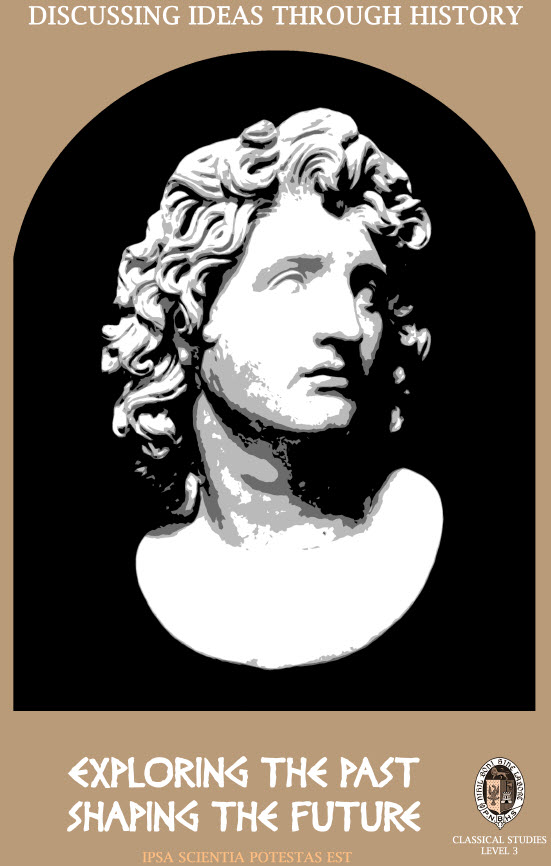Classical Studies Department
Classical Studies engages the minds and imaginations of students.
Classical Studies encourages students to make links between past and present civilisations, to imagine a possible future. By exploring diverse values and traditions, viewed from their own cultural perspectives and those of others, Classical Studies prepares students for informed and active citizenship in New Zealand and the modern world.
New Zealand continues to be influenced by the classical world.
By understanding the political, military, religious, philosophical, technological, artistic, and aesthetic developments of the ancient Greeks and Romans, students learn how the past continues to inform the present. From the rise and fall of powerful individuals and empires to the creativity and invention of artists and engineers and to the formulation of ethical systems and the evolution of social justice, students become increasingly aware of the debt owed to classical Greece and Rome.
Classical Studies students learn to ask questions and challenge ideas.
Classical Studies fosters thinking and inquiry skills by exploring classical sources and by debating issues within the context of the key concepts. Students not only gain an enthusiasm for classical civilisations but also learn to select, organise, and communicate information clearly and logically and to evaluate the reliability of evidence. By learning about the diverse and complex values of these societies, students develop the ability to form and reflect on their own viewpoints, respect others’ viewpoints, and make informed judgments based on critical thinking.

The Year 11 Classical Studies Course
Classical Studies at this level is a foundation course. The subject consists of three disciplines: literature, history and art/architecture. The course begins with the study of Homer's Odyssey - the epic tale of Odysseus' return to Greece after the Trojan War in 1250BC. Following that study, the course moves to ancient Rome and explores the deeds of the heroic Roman slave Spartacus, who fought against tyranny. Then students study some ancient Roman architecture - the Colosseum and Hadrian's Villa (including art works found there). As part of an internal assessment task, students travel to Wellington and explore the way the Westpac Stadium was influenced in its design by the Colosseum.
The Year 12 Classical Studies course
Year 12 Classical Studies moves from the Trojan War to the volatile but fascinating events of the Persian Wars in the early fifth century. Battles associated with the conflicts between Greece and Persia are studied. Following this military study, the course moves to the artistic creativity of the Greek dramatists, particularly that of Sophocles. Then the art and architecture of Pompeii, preserved following the volcanic eruption of Vesuvius in 79AD, is the focus for study.
The Year 13 Classical Studies course
Year 13 Classical Studies contains an in-depth look at the art and architecture of ancient Rome. From studying these ancient artifacts we can learn much about the heroes and religion of Rome. The course then moves to a full examination of the military and political career of the first Roman Emperor, Augustus Caesar. Concluding the course is a study of one of the Roman authors Virgil or Juvenal.
Preparing for your future with Classical Studies